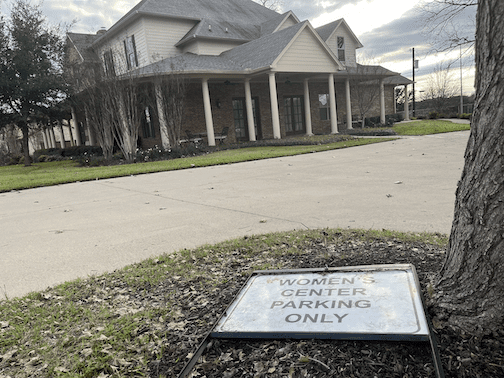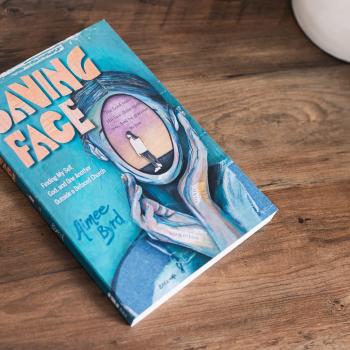
In her Women and Power: A Manifesto, historian and bestselling author of SPQR Mary Beard explains why language used to describe women’s voices (such as “strident,” “whiney,” or, in regards to my own experience, “shrill,” “high octane,” “emotional,”) matter.
“Do those words matter? Of course they do, because they underpin an idiom that acts to remove the authority, the force, even the humor from what women have to say. It is an idiom that effectively repositions women back into the domestic sphere…;it trivializes their words, or it ‘re-privatises’ them. Contrast the ‘deep-voiced’ man with all the connotations of profundity that the simple word ‘deep’ brings. It is still the case that when listeners hear a female voice, they do not hear a voice that connotes authority…They do not tend to hear a voice of expertise either…It is not what [women]say that prompts [abuse], it’s simply the fact that [women are] saying it.”
Mary Beard is specifically addressing the challenges of women speaking in public, but her words have a broader application. This semester I am teaching a graduate seminar on Women and Religion. Because I am a medievalist focusing on England, I usually focus this course on women in late medieval and early modern Europe. This year I have expanded the scope to provide a comparative framework chronologically (from ancient to modern) as well as to move beyond the experiences (and writings) of white women. Two questions will drive the seminar: what does religious authority mean for women and how does gender impact women’s ability to exercise religious authority.
Since a semester is short and I am alway attentive to the cost of books for students (several of the books I chose are available online through the Baylor library), this is my winnowed list (excluding the primary sources). I hope you find it useful 🙂
Happy Reading, y’all!
Wilda Gafney, Daughters of Miriam: Women Prophets in Ancient Israel (Fortress Press: 2008). Approximately $21 paperback; $20 kindle. Wilda Gafney is a womanist biblical scholar, Professor of Hebrew Bible at Brite Divinity School in Ft Worth, TX, and an Episcopal priest.
Kate Bowler, The Preacher’s Wife: The Precarious Power of Evangelical Women Celebrities (Princeton University Press, 2019). Approximately $10 kindle; $8 audiobook; $8 hardcover; $15 paperback. Bowler is a New York Time’s bestselling author and associate professor of American Religious History at Duke University.
Sarah Coakley, Powers & Submission: Spirituality, Philosophy, and Gender (Wiley Blackwell, 2022). Coakley most recently retired from the Norris-Hulse Professorship at Cambridge University and is currently an Honorary Professor at the Logos Institute, St. Andrews University as well as a Visiting Professional Fellow at Australian Catholic University. She is also an Episcopal priest.
Jo Ann McNamara, editor and translator, Sainted Women of the Dark Ages (Duke University Press, 1992). McNamara was professor emerita at Hunter College, City University of New York, where she taught from 1962 to 1998. She is also the author of Sisters in Arms: Catholic Nuns Through Two Millenia (Harvard University Press, 1996).
Gary Macy, The Hidden History of Women’s Ordination: Female Clergy in the Medieval West (Oxford University Press, 2007). Macy is the John Nobili, S.J. Professor of Theology in the Department of Religious Studies (Professor Emeritus) at Santa Clara University.
Beverly Mayne Kienzle and Pamela J. Walker, eds., Women Preachers and Prophets through Two Millenia of Christianity (University of California Press, 1998). Kienzle is retired as the John H. Morison Professor of the Practice in Latin and Romance languages at Harvard Divinity School, but continues as an affiliate of the Harvard Standing Committee on Medieval Studies. Walker is a professor of Modern British, gender and women’s history, history of Christianity and missions, history of race and racial identity in historical perspective at Carleton University.
Katherine L. Jansen and Miri Rubin, eds., Charisma & Religious Authority: Jewish, Christian, and Muslim Preaching (Brepols, 2010). Katherine Jansen is a medieval historian at Catholic University in Washington D.C. She has held fellowships from the Fulbright Foundation, American Academy in Rome, National Endowments
Anthea Butler, Women in the Church of God in Christ: Making a Sanctified World (University of North Carolina Press, 2007). Butler is the Geraldine R. Legal Professor in American Social Thought and Chair of Religious Studies at the University of Pennsylvania and currently serves as President of the American Society of Church History. She is also the author of White Evangelical Racism: The Politics of Morality in America, a regular opinion writer for MSNBC, and the 2022 winner of the Marin E Marty Award for the Public Understanding of Religion, awarded by the American Academy of Religion.
Lisa Weaver Swartz, Stained Glass Ceilings: How Evangelical Do Gender and Practice Power (Rutgers, 2022). Swartz earned her PhD in sociology from the University of Notre Dame and is currently an assistant professor and director of the sociology program at Asbury University. Scot McKnight named her first book, Stained Glass Ceilings, the Jesus Creed book of the year for 2022.
Eunjoo Mary Kim: Women Preaching Theology and Practice Through the Ages (Wipf and Stock, 2009). Kim is the Charles G. Finney Professor in Homiletics at Vanderbilt University Divinity School and an ordained Presbyterian minister. She previously taught preaching, worship, and practical theology at the Iliff School of Theology and is currently a recipient of the Louisville Sabbatical Grant for Researchers to work research for a “project on postcolonial approaches to lectionary preaching.”













